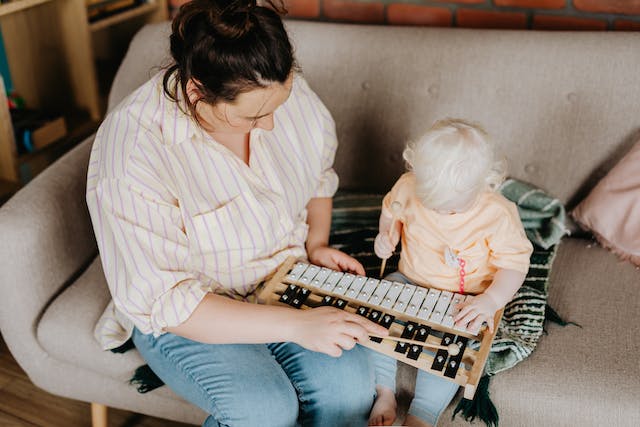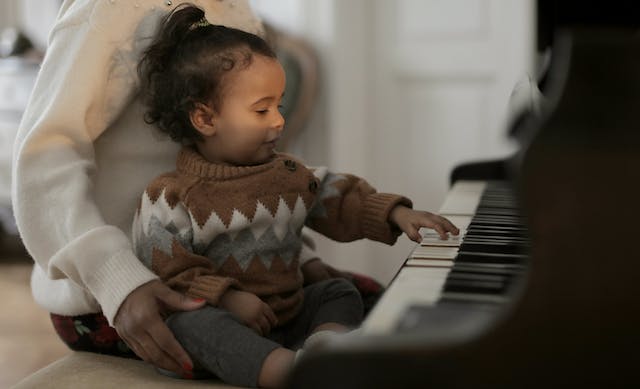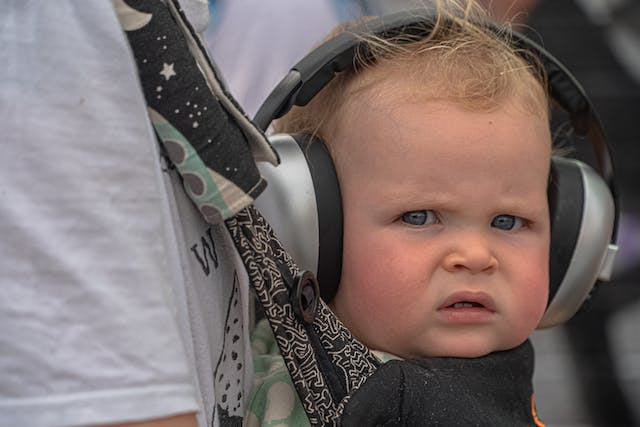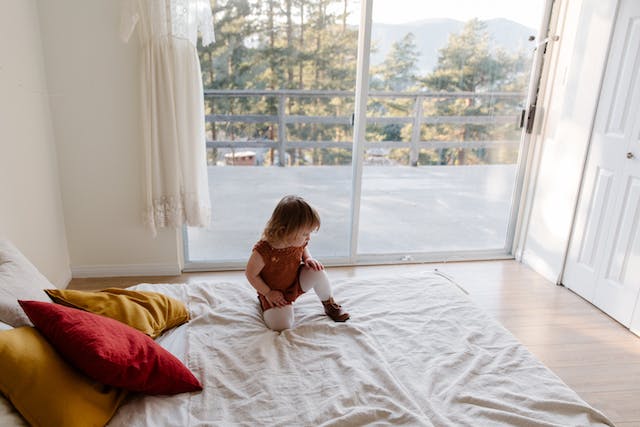Do you want to know more about music for babies? The journey of parenthood is a melody of moments, and one harmonious note that can resonate deeply with both parents and babies is music. Beyond its entertainment value, music plays a pivotal role in the development of infants, offering a symphony of benefits that extend far beyond the joyous tunes. In this exploration, we’ll delve into the enchanting world of music for babies, uncovering its magical influence on baby development and how incorporating melodies into your little one’s life can be a key to unlocking their potential.
Table of Contents
Early Exposure to Musical Melodies

Musical Sensitivity: A Symphony for Tiny Ears
When babies are born, their ears become finely tuned receptors for the world around them. Early exposure to soothing lullabies, gentle melodies, and the rhythmic patterns of music fosters musical sensitivity. Babies instinctively respond to the comforting sounds, laying the foundation for lifelong music appreciation.
Cognitive Development: A Harmonious Brain Boost
Research suggests that exposure to music during infancy can positively impact cognitive development. Musical stimuli engage various brain areas, enhancing neural connections and promoting cognitive skills such as memory, attention, and problem-solving. The harmonious interplay of melodies creates a mental symphony that contributes to a baby’s overall brain development.
Music for Bonding and Emotional Well-being

Bonding through Lullabies: A Heartfelt Connection
With their gentle melodies and soothing lyrics, lullabies serve as more than just a lull to sleep. They create a powerful bonding experience between parent and baby. The shared moments of singing or playing music for babies establish a heartfelt connection, promoting emotional well-being and a sense of security for the little one.
Emotional Expression: Music as a Communicative Tool
Music becomes a universal language of expression for babies still developing verbal communication skills. The tones, rhythms, and melodies convey emotions, allowing babies to connect with and understand the emotional nuances of the world around them. Through music, babies explore their emotional expressions, laying the groundwork for effective communication.
The Dance of Physical Development
Motor Skill Development: Grooving to Growth
The rhythmic nature of music invites babies to move and groove, fostering motor skills development. Whether it’s a gentle sway or a little foot tap, listening to music encourages exploring movement. As babies engage with the rhythm, they refine coordination, balance, and motor control in a delightful dance of physical development.
Sensory Integration: A Multi-Sensory Symphony
Music engages multiple senses simultaneously, creating a rich sensory experience for babies. From the auditory pleasure of melodies to the tactile sensations of musical instruments and even the visual appeal of colorful musical toys, babies immerse themselves in a multi-sensory symphony. This holistic engagement contributes to sensory integration, enhancing how babies process and respond to the world around them.
Musical Notes in Early Learning

Language Development: The Melody of Words
Music and language are intertwined; exposing babies to musical elements can positively impact language development. The rhythmic patterns and varied tones of music help babies discern the nuances of language, paving the way for enhanced linguistic abilities. Singing nursery rhymes and songs introduces babies to the melodic structure of language, supporting their journey toward verbal communication.
Mathematical Foundations: Counting the Beats
Surprisingly, music for babies also lays the groundwork for mathematical understanding. The rhythmic patterns in music provide an early introduction to concepts like counting and sequencing. Babies unknowingly embark on a mathematical journey as they listen and respond to the beats, setting the stage for more complex numerical concepts in later years.
Tips for Incorporating Music For Babies
Diverse Musical Experiences: A Playlist of Possibilities
Diversify your baby’s musical exposure by creating a playlist that spans various genres and styles. From classical compositions to lively folk tunes, exposing babies to diverse musical experiences broadens their auditory palate and expands their musical repertoire. Each genre introduces unique rhythms and tones, contributing to a well-rounded musical education.
Interactive Music Play: Instruments and Imagination
Incorporate interactive musical play by introducing age-appropriate instruments. Rattles, shakers, or soft drums allow babies to explore music’s tactile and auditory dimensions. As they experiment with making their sounds, they actively engage in the creative process, nurturing a sense of curiosity and imagination.
Balancing Technology and Tradition

Digital Resources: Tapping into Educational Apps
In the digital age, educational apps and platforms offer a modern approach to introducing babies to music. From interactive music games to animated sing-along videos, numerous digital resources are designed to engage and educate. While these tools can be valuable, balancing screen time and traditional, hands-on musical experiences is essential.
Live Performances: Concerts for Little Audiences
Please attend live musical performances with your baby. Whether it’s a local community concert or a specially designed performance for young audiences, the experience of live music for babies adds a layer of excitement and immediacy. Watching musicians play instruments and feeling the vibrations of live music contributes to a sensory-rich encounter.
Music as a Developmental Companion
Music for babies remains a steadfast companion as babies progress through various developmental milestones, supporting their growth in unique ways. Music becomes a source of encouragement and motivation from the first attempts at crawling to those initial steps. Incorporating rhythmic tunes into playtime can serve as a gentle guide, helping babies develop their physical abilities with a joyful rhythm.
Routine Rhythms: Musical Signposts for Daily Life
Integrate music for babies into daily routines to create a sense of predictability and comfort. Whether it’s a familiar song during bath time or a soothing melody before bedtime, routine rhythms become musical signposts that guide babies through the transitions of the day. Consistent exposure to these musical cues helps establish a comforting routine that promotes a sense of security.
Dance and Movement: Expressive Outlets for Energy
Encourage expressive movement through dance as babies become more mobile. Play upbeat and lively tunes that invite spontaneous dancing and training. Dancing provides a fun and energetic outlet and enhances coordination and spatial awareness. It’s a delightful way for babies to explore the capabilities of their growing bodies.
Global Sounds for Global Minds

Expand your baby’s musical horizons by incorporating tunes from different cultures. Exposing babies to musical traditions broadens their cultural awareness and appreciation for diversity. Whether it’s the rhythmic beats of African drums or the melodic tunes of Asian instruments, artistic exploration through music lays the foundation for a global perspective.
Musical Playdates: Social Harmony
Music can serve as a bridge for social interaction as babies begin to engage with their peers. Arrange musical playdates where babies can explore instruments or participate in group singing sessions. Sharing the joy of music enhances social bonds, fostering a sense of community and cooperation among little ones.
Parental Involvement: A Symphony of Connection
One of the most profound ways to incorporate music into a baby’s life is through active parental involvement. Singing lullabies, playing simple instruments together, or even dancing hand in hand creates a symphony of connection between parent and child. These shared musical moments become cherished memories that strengthen the parent-child bond.
Tailoring Musical Experiences

Just as each baby is unique, their music preferences can vary. Pay attention to your baby’s reactions to different genres, tempos, and instruments. Classical melodies may soothe some babies, while others may respond to the upbeat rhythms of folk tunes. Tailoring musical experiences to your baby’s preferences ensures they genuinely enjoy and engage with the musical journey.
Transitioning Tunes: Navigating Changes with Music
Music can be a comforting companion during times of change or transition. Whether moving from one activity to another or navigating developmental transitions, incorporating transitional tunes helps ease the process. The familiarity of a beloved song can provide reassurance and create a positive association with new experiences.
Conclusion
In the tapestry of baby development, music emerges as a thread that weaves through each stage, offering a symphony of benefits. From the early days of sensory exploration to the intricate dance of cognitive and emotional growth, music remains a steadfast companion.


